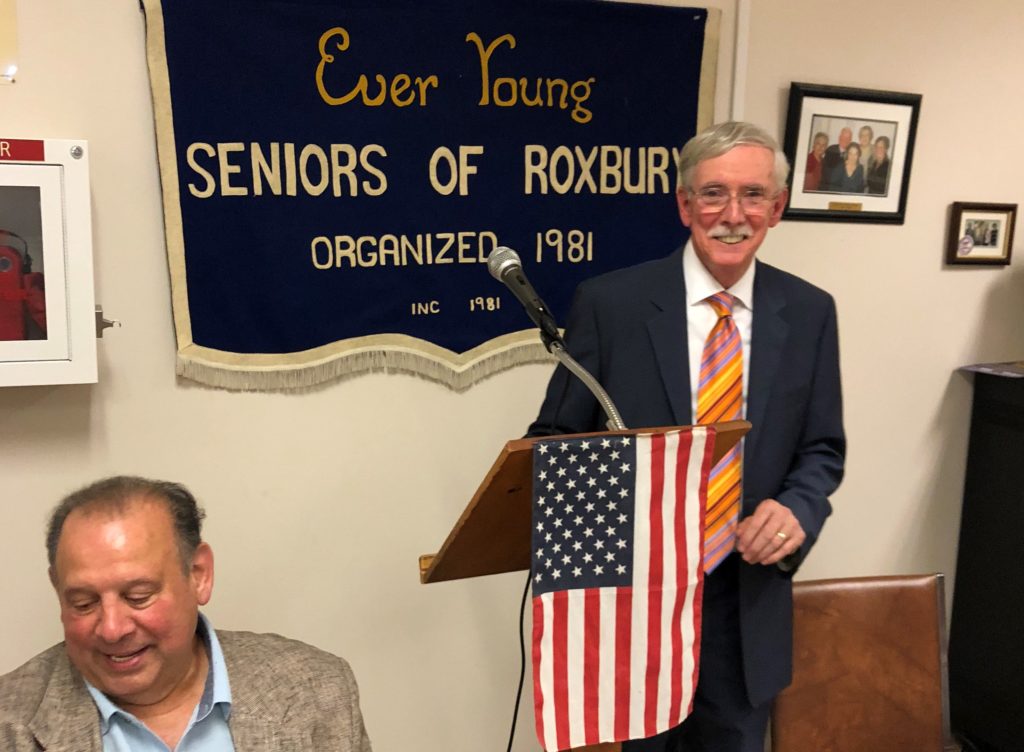The Somewhat Everest-sized Scaling of a Mount Arlington, Roxbury Consolidation
Listen to audio version of this article

They came, more than 200 of them, to defend their town and their way of life. OK, that's an exaggeration, but only by a wee bit.
A contingent of Mount Arlington residents journeyed to neighboring Roxbury Wednesday night to oppose any plan to merge the two towns into one. Roxbury has about four times as many residents as Mount Arlington.
The gathering at the Horseshoe Lake Recreation Center became spirited, if not raucous, very quickly.
The lead-off speaker said he recently moved to Mount Arlington, which he called a "unique and special" place. He said he could have moved to Roxbury if he wanted, but he didn't. So there! Other speakers implored the study commission to "leave us alone" and to "pick on" another town - Mine Hill and Randolph were mentioned.
Home rule has many devoted supporters in New Jersey, so the opposition was not surprising. Still, it was quite a different environment for a commission that has toiled for more than four years in relative obscurity. The commission's charge is simple - explore if combining the two towns would produce significant property tax savings. Any proposed merger would need voter approval in both towns.
The issue reverberates far beyond this small corner of western Morris County. For years, if not decades, some have seen municipal and school consolidations as a way to reduce property taxes. Many governors have given at least lip service to the idea. In this case, the 12-member commission says a merger would save from $9.2 million to slightly less than $12 million a year. The figures come from two separate studies.
But there are problems. Merging towns would mean all would pay property taxes at the same rate. But when property assessments are "equalized" between the two towns, Mount Arlington loses. That could be fatal to the whole idea. The commission acknowledges a merger can't move forward if property taxes in one of the towns are projected to rise.
Commission chair Craig Heard remains hopeful a creative way around that problem can be found. He's been spending much time conversing with the state Department of Community Affairs and other municipal government gurus to find a way forward. But the equalization mess has derailed plans to put the consolidation referendum on the November ballot. The goal is now 2020.
Not many people in the crowd seemed all that keen on discussing the regulatory impediments. Many were drawn to the meeting by misleading social media posts claiming the merger was virtually a done deal and that Mount Arlington would get hammered.
When some in the crowd questioned whether the commission really had an equal number of people from both towns (it does), you knew this wasn't a night for sober discussion. Cheap shots were more the norm - like when one critic sarcastically asked Heard if he was going to run for Congress again. Heard lost a GOP primary run in 2016 in District 7.
The reaction was disappointing. The equalization problem aside, a commission report is quite reasonable. It speaks of realizing savings primarily through attrition, not mass firings. And yes, some schools would be closed, but that would be because of declining enrollment more than anything else.
As has been noticed over the years, many decry property taxes in New Jersey, but fight possible ways to reduce them.
During the meeting, the late Art Ondish, a one-time Mount Arlington mayor, was mentioned, drawing some cheers. Ondish tried once to save money by eliminating borough police and contracting for service with another municipality.
That plan failed. If it had been successful, merging with Roxbury might be easier to achieve.





